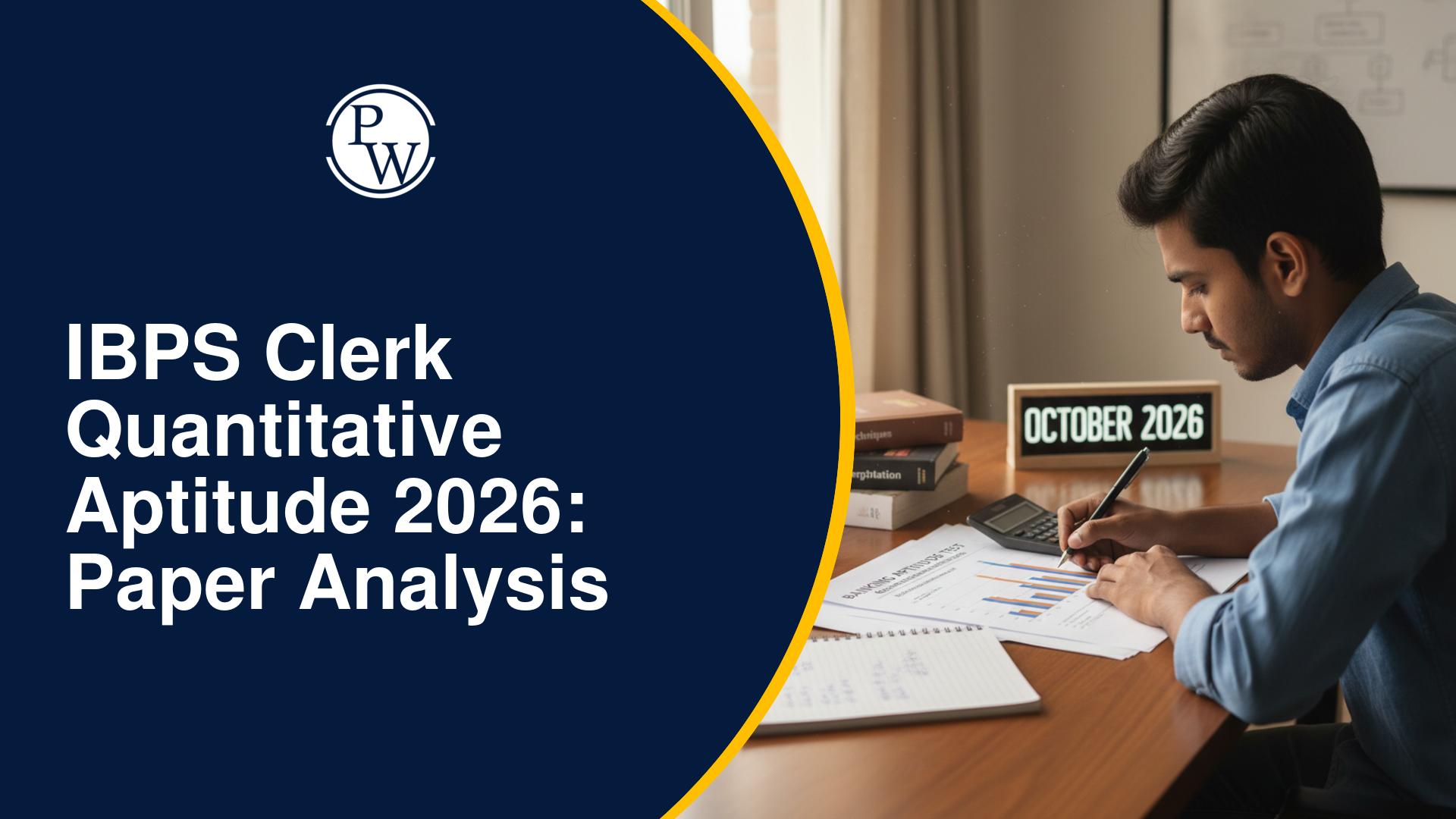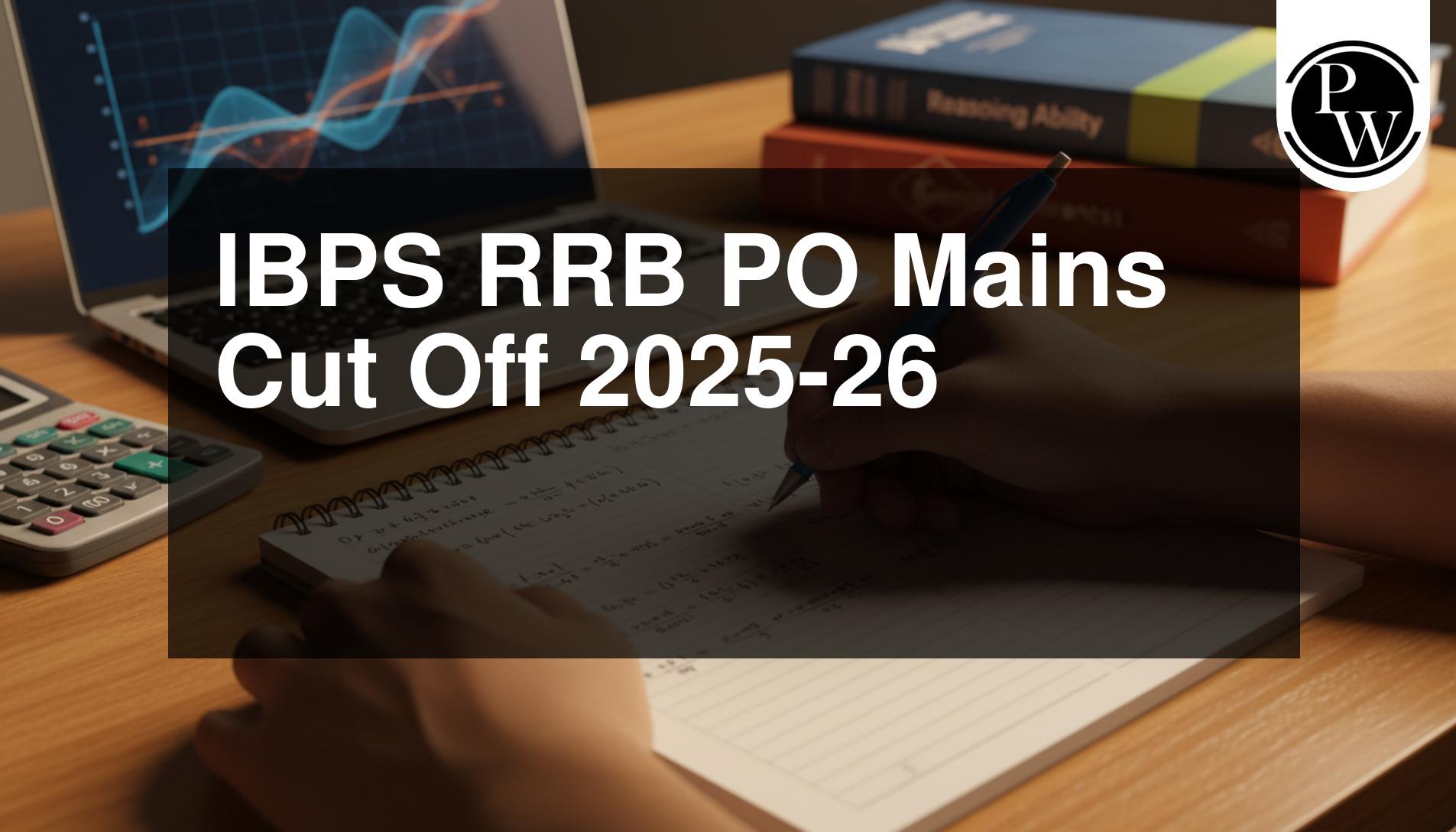
NaBFID Syllabus 2025: The National Bank for Financing Infrastructure and Development (NaBFID) has started the recruitment drive for 66 Analyst Grade A posts for eligible candidates. Officials have declared the NaBFID Analyst Exam Date 2025, as per the schedule the online examination will be held on 8th June 2025 (Sunday).
Candidates planning to appear for the online exam must cross check the topics to be covered as per the latest NaBFID Syllabus 2025 and Exam Pattern. To help candidates to prepare for the exam here we have listed the important topics to be covered under the NaBFID Analyst Syllabus 2025.
NaBFID Admit Card 2025 Out- Click Here
NaBFID Syllabus 2025
As per the NaBFID Recruitment 2025 the selection process for 66 Analyst posts consists of online exam followed by Interview round. The NaBFID exam assesses candidates' proficiency in Reasoning, Quantitative Aptitude, Data Analysis and Interpretation, English Language, and Professional Knowledge. The NaBFID Exam Pattern 2025 consists of a computer-based test (CBT) and it includes four sections, carrying a total of 80 questions for 100 marks.
To prepare for the NaBFID Exam 2025 for Analyst posts, candidates should carefully study the NaBFID Syllabus 2025 that will help candidates identify the topics that need focus based on their significance and weightage.
NaBFID Syllabus And Exam Pattern 2025
Candidates planning to appear for the NaBFID Exam 2025 should start their preparation with the help of the NaBFID Syllabus and Exam Pattern 2025. In the below table you can find the overview of the NaBFID Exam Syllabus 2025 and essentials details that need to be taken care of.
|
NaBFID Syllabus 2025 Overview |
|
|
Recruitment body |
National Bank for Financing Infrastructure and Development (NaBFID) |
|
Posts |
Analyst |
|
Vacancies |
66 |
|
Mode of Exam |
Online |
|
NaBFID Exam Date 2025 |
8th June 2025 |
|
Type of Questions |
Objective-Type |
|
Number of Questions |
80 |
|
Total Marks |
100 |
|
Negative marking |
Negative marking of 0.25 marks |
|
Selection Process |
Online Examination and Interview |
|
Official Website |
www.nabfid.org |
NaBFID Analyst Syllabus 2025
The subjects involved in the NabFID Analyst Syllabus are Reasoning, Quantitative Aptitude, Data Analysis and Interpretation, English Language, and Professional Knowledge. Candidates must read the below section to learn the section-wise syllabus for the NabFID Exam 2025 and startegize their preparation as per the weighatge, important topics to be covered, etc.
|
NaBFID Syllabus 2025 |
|
|
Sections |
Topics |
|
Reasoning Ability |
|
|
Quantitative Aptitude |
|
|
Data Interpretation |
|
|
English Language |
|
|
Professional Knowledge |
|
NaBFID Analyst Syllabus for Professional Knowledge
Risk Management
Finance:
- Sound knowledge of Risk types, Risk Management strategies & Risk mitigation.
- Derivatives, Treasury Products & Forex Market.
- Understanding of Financial Markets: Primary and Secondary, Capital Markets, Money markets, Bond Valuation.
- Enterprise Risk Management Framework.
- Credit Scoring Model.
- Circulars and Recent developments regarding risk management.
- Working capital management.
- Capital budgeting concepts and techniques.
- Cost of capital.
- Operating Leverage & Financial Leverage, Time value of money.
Accounting:
- Meaning; Objectives; Basic Accounting; Principles, Concepts and Conventions; Limitations of Financial Accounting.
- Accounting Process & Concept of Depreciation
- Preparation of Financial Statements – Nature of Financial Statements; Trading Account; Profit and Loss account, Balance Sheet and Cash Flow Statement.
- Analysis and Interpretation of Financial Statements – Tools of Financials Statements analysis; Ratio Analysis – different types of ratios; Advantages and Limitation of ratio analysis.
Costing:
- Financial Accounting Vs Management Accounting Vs Cost Accounting; Overview of Costing.
- Marginal Costing (Break-even point, Margin of safety, Concept of PV ratio).
- Cost control & analysis.
- Inventory Management techniques.
Lending Operations
Finance:
- Project Finance – Meaning, Sources of Finance, Project Appraisal, Capital Budgeting Concepts & techniques, Circulars related to Project Finance, Concept of Public Private Partnership (PPP).
- Working Capital Management
- Cost of Capital
- Understanding of Corporate Banking
- General Concepts like Operating & Financial Leverage, CAPM Model, Time value of money.
- Concepts of Risk Management: Types of Risks and Risk management techniques,
- Basics of Derivatives and forex.
- Understanding of Financial Markets
- Understanding of Export Finance: Concept of Factoring, Letter of Credit.
Accounting:
- Meaning; Objectives; Basic Accounting; Principles, Concepts and Conventions; Limitations of Financial Accounting.
- Accounting Process & Concept of Depreciation
- Preparation of Financial Statements – Nature of Financial Statements; Trading Account; Profit
- and Loss account, Balance Sheet and Cash Flow Statement.
- Analysis and Interpretation of Financial Statements – Tools of Financials Statements analysis; Ratio Analysis – different types of ratios; Advantages and Limitation of ratio analysis.
Costing:
- Financial Accounting Vs Management Accounting Vs Cost Accounting; Overview of Costing.
- Marginal Costing (Break-even point, Margin of safety, Concept of PV ratio).
- Cost control & analysis.
- Inventory Management techniques.
NaBFID Analyst Exam Pattern 2025
-
NaBFID Online Exam is going to be held through online mode.
-
It consists of 4 sections namely Reasoning and Quantitative Aptitude, English language, Data Analysis and Interpretation and Professional Knowledge.
-
The NaBFID Analyst exam consists of 80 objective type multiple choice questions.
-
There is a penalty, for each incorrect response 0.25 marks will be deducted and no marks will be deducted for unmarked questions.
- The minimum Qualifying marks will be (i) 40% for Sections A & B each (35% for SC/ST/OBC/PwBD), (ii) Overall 50% for Total (A) & (B) (45% for SC/ST/OBC/PwBD).
| NaBFID Analyst Exam Pattern 2025 For Analyst | ||||
| Section | Name of the Exam | No. of Qs. | Max. Marks | Time |
| Section A | Reasoning and Quantitative Aptitude | 15 | 15 | 30 Mins |
| English Language | 10 | 10 | ||
| Data Analysis and Interpretation | 15 | 15 | ||
| Subtotal – (A) | 40 | 40 | ||
| Section B | Professional Knowledge | 40 | 60 | 30 Mins |
| Subtotal (B) | 40 | 60 | ||
| Total (A) and (B) | 80 | 100 | 60 Mins | |
NaBFID Analyst Interview 2025
The NaBFID Analyst Interview 2025 is conducted to assess candidates' Professional and technical knowledge, Communication skills, Analytical thinking and problem-solving abilities and Industry awareness, especially in finance, infrastructure, and government policies.
How to Prepare for Using NaBFID Analyst Syllabus 2025?
The NaBFID Syllabus 2025 comprises a range of subjects to evaluate the conceptual understanding and knowledge of aspirants. Candidates must follow the tips and tricks discussed below to cover the entire syllabus effectively:
- Understanding of NaBFID Analyst Syllabus - Firstly, the aspirants must thoroughly review the detailed NaBFID syllabus and exam pattern to become aware of the structure of the question paper. Aspirants must check out the topic-wise syllabus to start their effective exam preparation accordingly.
- Time Management - The students must follow effective time management during the preparation journey. You should provide enough time to all the subjects to cover the full syllabus effectively.
- Study Material - The aspirants should follow the exam-oriented study material to cover the detailed syllabus effectively. You should choose study resources by seeking guidance from Teachers.
- Practice - Consistent and regular practice is the most vital requirement to prepare for the examination. Candidates must follow the regular practice of key topics and concepts to improve their preparation level.
NaBFID Syllabus 2025 FAQs
Q1. Where can I get the details of the NaBFID Syllabus 2025?
Q2. What are the sections included in the NaBFID Syllabus 2025 for Analyst posts?
Q3. What is the NABFID Exam Pattern 2025?
Q4. Is there any negative marking in the NaBFID Exam 2025?
Q5. How many questions are asked in the NaBFID Exam 2025?










